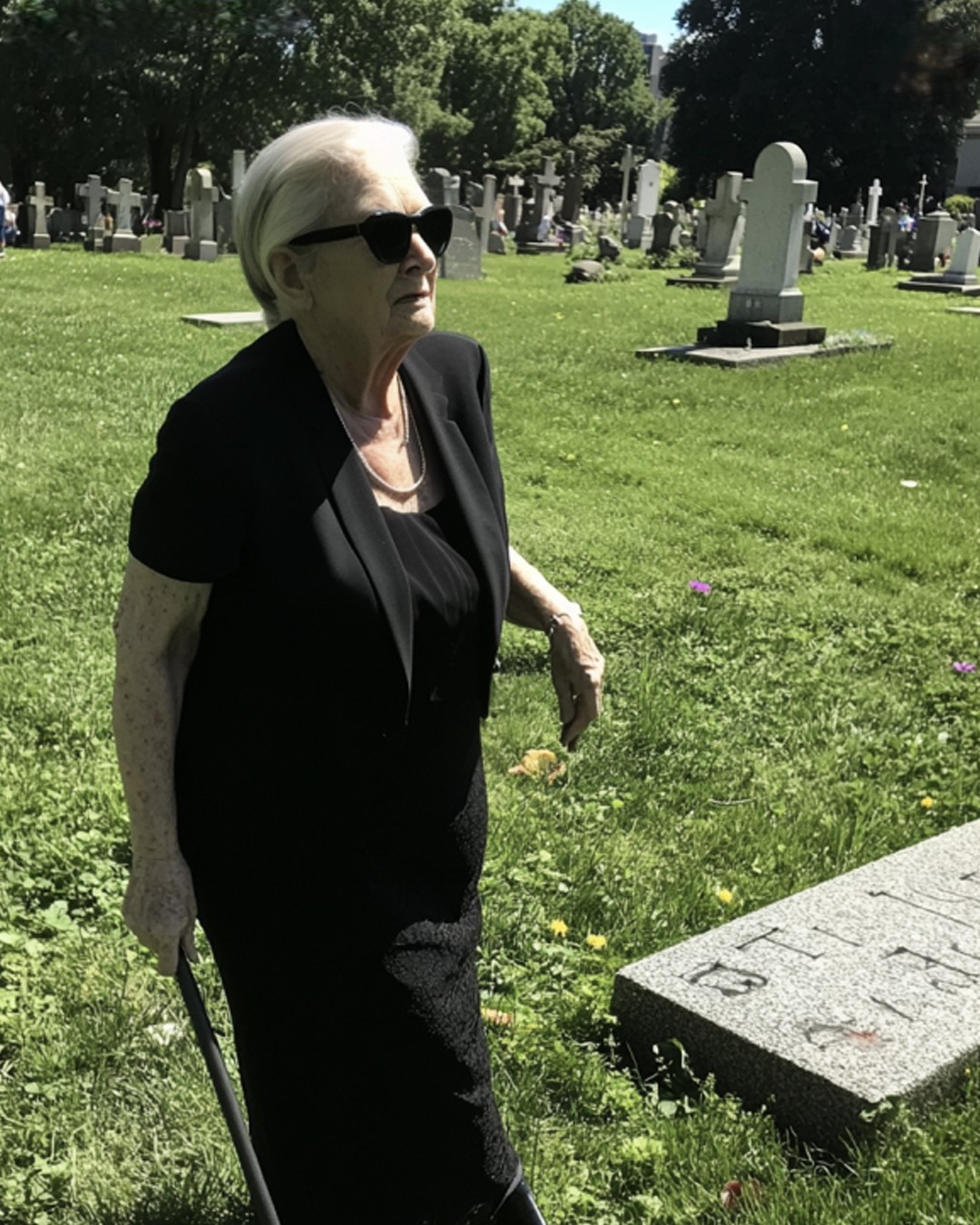An ordinary morning turned extraordinary in ways I could never have predicted. It began as a quiet visit to my father’s grave, a ritual that had become my solace in the six months since his passing. But by the next day, I was at the police station, accused of a crime I didn’t commit—all because of a kind gesture toward an elderly blind woman.
Grief is strange. Time stretches, yet memories remain sharp, like fragments of glass. Each week, I found comfort at my father’s grave, speaking to him in ways I never could while he was alive. That morning, the air was crisp, the towering oaks whispering with the breeze. I stood with a bouquet of white lilies, his favorite, and whispered a quiet goodbye.
As I turned to leave, a frail figure caught my eye—an elderly blind woman standing near a fresh grave, dressed in black and clutching a white cane. Her posture spoke of profound sorrow.
“Ma’am,” I called gently, approaching her. “Do you need help?”
She turned, a faint smile softening her face. “Oh, thank you, dear. If you could walk me home, I’d be grateful. My sons were supposed to pick me up, but they’ve forgotten.”
My heart twisted. Who would leave their blind mother stranded at a cemetery? “Of course,” I said, offering my arm.
Her name was Kira, and as we walked, she spoke of her husband, Samuel, who had passed just days before. “He was my world,” she said, voice trembling. “Forty-two years we had together. And now…” Her words dissolved into grief.
At her modest brick house surrounded by blooming roses, she invited me in for tea. Inside, the warmth of the home contrasted with the pain in her stories. Faded photos lined the walls—a testament to a life filled with love and loss. One caught my attention: a younger Kira and a man, hands intertwined before the Eiffel Tower.
As she poured tea, she mentioned, almost offhandedly, that Samuel had installed cameras in the house. “He didn’t trust the boys,” she explained. “They’re more interested in what I have than in me.”
When I left an hour later, I promised to visit her again, unaware that promise would plunge me into chaos.
The next morning, pounding on my door jolted me awake. Two men, flanked by a police officer, stood accusing me of theft. They claimed I had stolen from Kira during my visit. My protests fell on deaf ears as I was taken to the station.
Kira was already there when I arrived, her face lighting up when she saw me. “Thank goodness,” she said, gripping my hand. “I told them you didn’t do it.”
Her sons, Ethan and Mark, glared from across the room. “Then who did?” Ethan snapped.
Kira’s calm response cut through the tension. “Samuel installed cameras. Officer, check the footage.”
When the recordings arrived, the truth unraveled. I was seen helping Kira, making tea, and leaving. Moments later, Ethan and Mark appeared, rifling through drawers, pocketing cash and jewelry. Their guilt was irrefutable.
“You fools,” Kira muttered, her disappointment palpable.
The brothers were arrested, their greed laid bare. Kira’s voice trembled as she apologized to me, her sorrow not just for their actions but for the years she had turned a blind eye. “A mother’s love is complicated,” she said. “You keep hoping, even when you know better.”
In the weeks that followed, I visited Kira often. Her home, once shadowed by tension, became a place of warmth and reflection. We shared stories of love, loss, and resilience, our bond deepening with each conversation.
One afternoon, as sunlight streamed through her window, she spoke of Samuel’s unwavering strength. “He always believed in me,” she said. “And maybe, in a way, he sent you.”
I smiled, the thought comforting. As I prepared to leave, Kira pulled me into a gentle embrace. “Thank you,” she whispered. “For being my light in a dark moment.”
“You’ve been mine, too,” I replied softly.
Walking home under the fading sunlight, I felt lighter. Kira’s words echoed in my mind: Sometimes, strangers become family in ways you never expect. And in the unlikeliest of circumstances, we had found just that.

